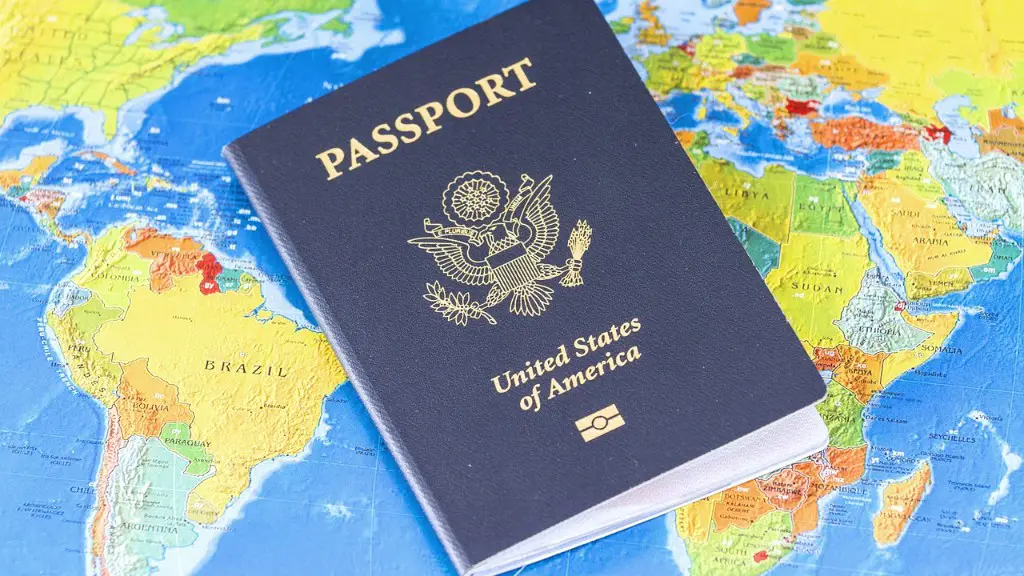No, you are not required to have insurance on a travel trailer in the United States. However, it is highly recommended. Insuring your travel trailer will protect you from damages incurred from accidents, weather, theft, and more.
There’s no requirement to have insurance on a travel trailer in the United States, although it’s always a good idea to have some form of insurance in case of an accident or theft. You can check with your auto insurance carrier to see if they offer any coverage for trailers, or you can purchase a separate policy from a specialized RV insurance company.
How much does travel trailer insurance cost?
If you are a full-time RVer, you can expect to pay higher insurance premiums than if you are a part-time RVer. This is because full-time RVers are more likely to use their RVs more often and thus are more likely to need to file insurance claims. Annual insurance premiums for full-time RVers can range from $2,000 to $3,000. Part-time RVers, on the other hand, usually only need to pay $1,000 or less per year for their insurance.
When shopping for insurance for your RV, be sure to pay special attention to the liability coverage. Generally, only an RV insurance policy will cover liability for a motorhome. For a travel trailer, liability coverage is typically provided by the towing vehicle’s policy. However, it’s always a good idea to check with your insurance agent to be sure.
Does travel trailer insurance cover theft
RV insurance may cover theft, but it depends on the types of RV insurance coverages you have. If your policy includes comprehensive coverage, theft of your RV, and internal components that were part of the RV when you purchased it, like cabinets or folding beds, may be covered.
If you own a travel trailer, you may be wondering if you need to get insurance for it. The answer is not always clear cut, as it depends on a few factors. However, as a general rule, it is a good idea to insure your travel trailer, as it is often a big investment and may be your full- or part-time residence. If you are not sure whether or not you need travel trailer insurance, speak to your insurance agent to get more information.
Can you claim a travel trailer on your taxes?
If you own an RV, you may be able to deduct some of the costs associated with it on your taxes. This is true for both new and used RVs. In some states, if your RV is your primary residence, you may also be eligible for additional deductions. Consult with a tax professional to determine what deductions may be available to you.
If you’re planning to take your camping vehicle out on the road, it’s a good idea to purchase camping vehicle insurance. This type of insurance will cover most of the potential problems you may face while camping, such as breakdowns, accidents, and weather damage. If you’re planning to travel long distances, you may also want to buy travel insurance to make sure you’re fully covered for that specific trip.
Is it a good idea to get RV insurance?
An RV is a significant investment and, like any other vehicle, it requires insurance. Some states require insurance for RVs, but even if it’s not required by law, it’s a good idea to insure your RV. A travel trailer may or may not require insurance, depending on the state. Either way, it’s a good idea to insure your investment.
Vacation liability is an important coverage to have if you plan on taking your RV on any trips. While your auto liability will cover you for accidents while driving the RV, vacation liability extends your coverage to accidents that may happen while the RV is parked. This can include things like slip and fall accidents, or even damage to property. If you don’t have vacation liability, you may be held responsible for any damages that occur, which could end up costing you a lot of money.
Is RV insurance the same as car
As the owner of an RV, you are responsible for ensuring that it is properly insured. RV insurance provides coverage for tow behind trailers and their contents. Your auto insurance will not cover physical damage that occurs to your RV, and your property insurance will not cover damage to your trailer. If you own a motorhome, your insurance coverage will be different than if you have a trailer. You will need to make sure that you have the proper coverage for your unique situation.
This type of coverage is important to have if you plan on travelling in your RV as it will help protect you in the event that something happens to your RV. This can include damage from vandalism, theft, fire, storms, floods, and other natural disasters. This coverage can also help protect you if you are in an accident with another driver who does not have liability insurance or does not have the funds to pay for damages they cause.
How do you lock a trailer so it can’t be stolen?
There are a few things you can do to help secure your trailer from theft. One is to get a tongue lock, which attaches to the coupler of your trailer where it connects to your ball hitch. This helps to prevent someone from being able to disconnect your trailer from your vehicle. Another option is to get a hitch lock, which keeps your hitch pin in place. This makes it more difficult for someone to detach your trailer from your vehicle. You can also use a chock lock, which helps to secure the wheels of your trailer so that it can’t be moved. Additionally, you can add an alarm system to your trailer, which will make it more difficult for someone to break in. Finally, you can park your trailer in a secure location or hide GPS tracking devices on it so that you can track it if it is stolen.
If you’re RV is stolen, you’re covered with RV insurance. This type of policy is specifically designed to protect trailers and motorhomes, and theft is generally included as a covered peril. This is one of many reasons RV insurance is a year-round policy. Theft can happen anywhere and at any time of year.
Do travel trailers hold their value
travel trailers do depreciate in value, but it evens out after a few years. Motorhomes, on the other hand, continue to depreciate even after the five year mark.
RVs, whether motorized or towable, are notorious for depreciation. Some RVs hold their value better than others for various reasons. In general, RVs lose between 30% and 45% of their value after only five years of ownership. RVs tend to lose their value quickly because of the nature of their construction and use.
How many years can you finance a travel trailer?
RV and camper financing terms generally range between 10 to 20 years. Most lenders offer flexible financing terms for new and used RV loans and refinancing. Options include choosing a shorter financing term with a higher payment, while others may choose a longer term with lower payments.
When renting an RV, you should make sure you’re protected throughout your trip with insurance. You may be able to purchase insurance for the RV you’re renting directly through the RV dealer or rental business, but chances are you’re able to insure the RV through your normal home and auto insurance company instead. This will give you peace of mind knowing that you’re covered in case of any accidents or problems that may occur during your trip.
Do people insure campers
Insurance coverage is essential in many cases. While some states don’t require camper insurance, you should be aware that you may be expected to carry insurance on your camper. There are varying levels of insurance including liability insurance, bodily injury insurance, and property damage insurance.
As the owner of a campsite or glamping business, you are likely to be responsible for the safety of your guests as they enjoy the facilities and activities on your site. If someone is injured or their property is damaged while staying at your campsite, they could make a claim against you for compensation.
Public liability insurance for campsites and glamping businesses can protect you from the financial fall-out of any such claims, as well as cover the cost of any legal expenses you incur in defending a claim.
Final Words
No, you are not required to get insurance on a travel trailer.
There is no right or wrong answer to this question, as it depends on each person’s individual needs and circumstances. Some people may choose to get insurance on their travel trailer for peace of mind, while others may feel that it is not necessary. Ultimately, it is up to the individual to decide whether or not to get insurance on their travel trailer.




